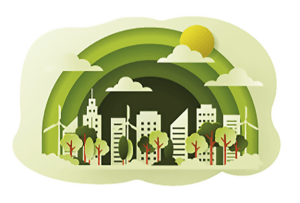Menu

What is one of a business’s greatest assets these days - what is a prominent "asset" these days? What is the situation for cities and city operators? How can a data-based decision support solution contribute to a more sustainable, liveable city? More satisfied residents? Greener operations? Lower operating costs?
It is trivial to consider that the technological, social and economic developments of the last decades, as a result of the development of the information society, have led to the generation of unprecedented amounts and complexity of data, even in the most mundane activities. We use our mobile phones to shop, navigate, pay, access services - generating unimaginable and almost incomprehensible amounts of information - making the economic value of data and its relevant information invaluable. Data has become a key factor in increasing economic and social prosperity, the question is: can we manage and use it in the right form and in the right way?
To answer this question and to clarify the situation, let us look at the decision-support solution of the City of Szolnok, which is still in its pilot, first phase, and which brings to the fore both digitalisation efforts and initiatives for innovation and sustainability as aspects and directions.
To ensure the sustainability of a city, it is essential to ensure the functioning of the city, the transparency of urban services and the improvement of the operational efficiency of urban services. A city can be run in a competitive and sustainable way if it is supported by the same methods, procedures and tools that the business world uses to monitor, optimise and improve its processes. Why not use these tools in a new light?
A key element of competitiveness is the ability to adapt quickly to a changing environment.
The efficient management of urban operations, the development of new services and the continuous optimisation of existing services can only be achieved if the data generated in the relevant areas is collected, processed and transformed into the information needed to inform decisions.
In many cases, the services provided by cities and the State to the population are public services or services of general interest, and it is therefore of paramount importance that adequate data on these services are available.
Based on the discussions with the City of Szolnok, a number of areas have been identified where the above could lead to tangible urban benefits, reduce operating costs, improve the quality of services and thereby increase public satisfaction with the implementation of procedures to support competitiveness.
The City has contributed to the establishment of the digital ecosystem framework by providing the necessary data background and regular consultation. We have jointly identified opportunities for cooperation in the following areas: energy, transport, vehicle fleet management, air quality improvement, optimisation of mosquito control.
In the first area, energy, we analysed the energy use of the institutions, including electricity consumption, resulting in a model for a solar investment based on institutional data.
In the transport theme, an analysis of anonymised urban parking patterns, typical user needs and characteristics was carried out, and compared with relevant data from other areas of the country, to identify areas for optimisation.
With regard to fleet management, not only costs but also emissions were analysed, thus proposing the optimisation of mileage - cost - fuel type elements.
Currently, the solution's next phase is being prepared to extend the model's data scope developed in the pilot, integrate new data, including specific forecasting functions, and allow integration with urban management, urban economic and planning subsystems.
Our common goal is to build an innovative, easy-to-use and efficient solution using the operational statistical data currently available and to be available in the future, which will provide clear benefits for the City of Szolnok, more sustainable operations and additional cost savings.
Sources:
https://info.szolnok.hu/
https://nmzrt.hu
https://nminnovacio.hu
https://nkerepo.uni-nke.hu/
http://hadmernok.hu/154_15_nagynetv.pdf
https://www.wired.com/
https://www.forbes.com/
https://www.sciencedirect.com/